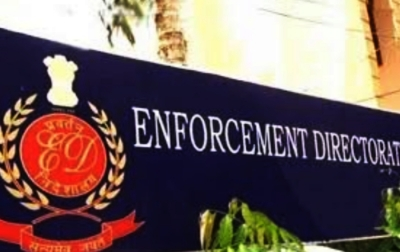Can’t penalise 3rd parties who unknowingly buy properties attached by ED: Appellate Tribunal
By IANS | Updated: July 13, 2025 17:59 IST2025-07-13T15:59:21+5:302025-07-13T17:59:45+5:30
New Delhi, July 13 In a landmark judgment, an Appellate Tribunal dealing with money laundering cases stated that ...

Can’t penalise 3rd parties who unknowingly buy properties attached by ED: Appellate Tribunal
New Delhi, July 13 In a landmark judgment, an Appellate Tribunal dealing with money laundering cases stated that if the ED fails to publicise or delays the attachment of an accused’s property, it would be unfair to penalise third parties who unknowingly purchase these properties.
The Appellate Tribunal under the Smugglers and Foreign Exchange Manipulators (Forfeiture of Property) Act (Safema), 1976, New Delhi, said this while quashing the Enforcement Directorate’s attachment of a Pune land parcel on which a housing society was built for 126 families.
The Appellate Tribunal, comprising Members G.C. Mishra and Rajesh Malhotra, nullified the ED’s plan to seize the plot, pointing to the federal agency’s failure to make the attachment public.
The Appellate Tribunal observed that ED’s laxity rendered the attachment order “unenforceable against bona fide transferees”.
Pulling up the federal agency for its conduct that amounted to “negligence verging on collusion”, the Appellate Tribunal set a precedent on third-party rights under the Prevention of Money Laundering Act (PMLA).
The ruling also sets a template for all such cases where third parties unknowingly purchase attached properties.
In its order dated July 8, the Appellate Tribunal ruled that the limitation for appeal under PMLA must run from the date of actual knowledge of the attachment, not from the secret date of issuance.
Saving the 126 families from uncertainty, the Appellate Tribunal ruled in favour of the petitioners -- special-purpose development company Hindavi Swarajya Trading and 126 families of Scrum Utkarsh CGHS. It also quashed the ED’s 2013 attachment of land at Survey No. 220, Hinjewadi, Pune.
The land parcel, acquired by Hindavi through lawful consideration and extensive due diligence, was the site of the Scrum Utkarsh cooperative housing project -- a community of 126 homes constructed and occupied by middle-class software professionals and their families.
The origin of the ED attachment of the plot on which the flats were built was linked to scam kingpin Sayed Masood’s laundering of Rs 6.67 crore of investor funds from City Limouzines into the Hinjewadi land, which was routed through shell transactions facilitated by Sajid Ibrahim Varekar (Masood’s power-of-attorney holder) and Guddu Mehboob Sheikh.
At no point was Hindavi or its members aware that the ED had secretly attached the land in March 2013 in connection with the City Limouzines scam, masterminded by Sayed Masood.
The late and selective invocation of powers led to a near-collapse of flat registrations and years of litigation for both Hindavi and Scrum.
The Appellate Tribunal, recognising the human cost, observed that penalising bona fide purchasers who had followed every procedural safeguard, while allowing actual money launderers’ properties to lie untouched, would “invert the raison d’être of the PMLA.”
Lead counsel for the appellants, Faraz Khan, said, “This decision draws a constitutional boundary -- punish launderers, not honest citizens.”
“Due diligence is not a game of hide-and-seek. When the State attaches property, it must shout it from the rooftops -- register it, publicise it, mark it. The ED’s failure to follow this process almost destroyed the lives of 126 families,” he said.
Freezing and de-freezing crores of suspected laundered funds while concealing attachment from an innocent purchaser is not just carelessness -- it is institutional failure, he said.
Aakriti Mathur, counsel for Scrum Utkarsh, said, “This case was never just about property law or technicalities -- it was about protecting the dignity and homes of 126 innocent families.”
“We stood firm because our clients were never part of the original wrongdoing, yet were being crushed by its legacy,” said Mathur.
Disclaimer: This post has been auto-published from an agency feed without any modifications to the text and has not been reviewed by an editor
Open in app